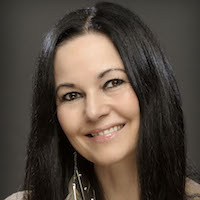As a violinist, I’ve performed with rock stars like Elton John, Aretha Franklin, and James Taylor.
As well as for presidents and prime ministers.
I’ve performed for the Danish royalty, and was given an award by the Queen of Denmark.
But, it wasn’t always like that.
I used to suffer from terrible performance anxiety, and could barely hold myself together on stage. Sometimes, my hands trembled so much, I couldn’t keep my bow on the string.
I would use all my energy just to get through a concert, only to go home and dread the next one.
To say it became depressing is an understatement. Stage fright is a beast when you spend hours a day, pouring your heart out, and preparing something you won’t be able to play anyway.
Playing the violin was all I had known since I was six, and yet one day I just knew it: I could get a different strategy or a different career.
I got a different strategy.
First, I began to analyze my behavior, body language, vocabulary and focus.
It turned out I thought and spoke a lot about my fears, what could go wrong, and how others might perceive me. I labeled myself a fearful person; being afraid was an obstacle, and getting rid of it an obsession.
Next, I stalked confidence. I picked out people who performed with joy, passion and abundance, and observed them on and off stage. What were the differences?
There were many. In general, confident performers had:
A positive, can-do vocabulary
A strong, confident body language
A focus on the message, not on the messenger.
When I think back on how much I suffered from stage fright, the steps I took to overcome it were almost painfully simple:
I transformed my vocabulary.
The first thing I did was change my entire vocabulary and ban all words that had to do with hesitation, doubt and fear. It became clear that when I told people around me how nervous I felt, I actually stayed longer in the emotions I wanted to avoid. What you consistently speak you will become. We feel the words we speak, and frequently using the word “fear,” just perpetuated being afraid. I was telling my brain how I felt, not giving
it direction to change.
I changed my physiology.
In order to feel a particular emotion, the body has to do something. Confidence and fear do not have the same corresponding body language. Just like I made myself feel strong by changing the words I spoke, I made a point of standing tall, smiling often, breathing deeply, keeping my head lifted, my shoulders back, my chest out, and speaking with a strong, deliberate voice. My new body language was like an armor in which I wrapped myself. With that as my companion, fear had no room.
I took the focus off myself.
All results start from creations in our mind. I knew the biggest urgency in overcoming my stage fright was changing my focus. Learning to visualize was the defining factor in altering my thoughts and attention. My playing became more expressive and powerful, and me, myself and I vanished into the background.
Practicing became a game where I fantasized how a phrase would sound if I had no limitations and could pick the ultimate, most perfect delivery. Phrase by phrase, I practiced first looking at the music, then hearing it in my head, and then finally practicing it with my instrument until it sounded the way I had just heard it in my mind. Next, I visualized walking on stage feeling confident and secure, excited to play. I imagined playing my entire program from beginning to end, often in great detail. When we magnify something internally, it will be magnified externally.
It was exhilarating.
I used the power of suggestion to control my mindset.
I knew that in order to completely overcome my stage fright, I had to learn to control my mindset. The power of suggestion simply lies in how profoundly influenced humans are by what we see. We think in pictures, each image bringing with it an emotion. As an example, I once performed at a huge festival. There were 10,000 people outside, waiting for the show to start. I had struggled with a solo earlier in the day, and
frantically began to practice it over and over again. It was 15 minutes before showtime, and I felt insecure and weak. I went to my green room, immersed myself in mental images that symbolized brute physical, powerful strength to me. I made my inner pictures as big, colorful and vivid as I could, and played them in my mind like a movie. When I felt what I was looking at—power, strength and balance—I walked out on stage and had a great time. Was overcoming stage fright easy?
Yes.
Being afraid all the time was the hard part.
Overcoming my fear made it possible for me to have a very successful career and enjoy playing incredible music with amazing artists. Now, as a performing expert and coach, I teach others how to excel in bringing their message to the world, on stage, in the field or in the boardroom. Stage fright is learned, and can therefore be unlearned as well. The brain is highly programmable, and fear needs never be center stage. I firmly believe that what is between who we are today and who we want to be, is just a another strategy.
Once we know that, there are no limitations.
Relephant read:
Overcoming Anxiety Is Possible; Here’s How I Did It.
~
Author: Hanne-Berit Hahnemann
Editor: Travis May
Photo: Wikimedia







Read 0 comments and reply